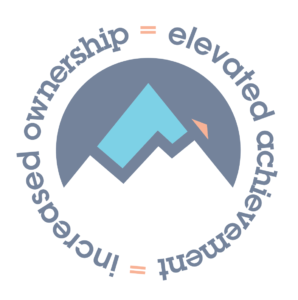Share this article.
Hello, Students!
We’re Elevated Achievement, a group of educators dedicated to helping schools, teachers, parents, and caregivers, and you, the students. We exist because we believe that each and every person deserves to own their learning each and every day and in each and every lesson.
What does “owning how well you are learning” mean? Well, it’s a process of self-assessment or reflection that you, the student, need to use in each and every learning experience, if you want to own your learning and elevate your achievement. The first step in this process is understanding why owning your learning matters. So, read on.
Why Owning Your Learning Matters
When you hear the word “assessment,” you probably think of tests, quizzes, multiple-choice, short-answer, essays, all the types of things that teachers use to give students their grades. But, what if we shift how we think about assessment? What if we think about it as something we can control? What if we think aobut could use it as a tool to determine our own learning?
“For many teachers, assessment occurs at the end of the lesson, unit, or course. It is used primarily to determine what the student knows or doesn’t know. Almost all assessments are viewed as summative, and the vast majority are some kind of formalized test. Teachers then discuss students in terms of their test scores—Jose received 98 percent on the midterm and is ready for geometry; Erika got an F on the midterm and needs to repeat algebra 1. Thus, in most classrooms, we find assessment of learning, not assessment for learning. This is why we hear students say that the teacher ‘gave me that grade’ and not ‘I made the decision to earn that grade.’
This approach to assessment tends to make the teacher the focus—they are the final judge of what students know or don’t know. We need to flip this to make the student the focus—they are the judge of their own knowledge and skills.” (Crowe and Kennedy, 2023)
In other words, we can think about assessment differently. We can think of it as more than a teacher’s test. We can think of it as the student’s ability to check for understanding so they can know every step of the way when they are learning and when they are struggling. That is student ownership. That’s why it matters.
What Is Your Role in Owning How Well You Are Learning?
There are several roles you can take in learning. We believe that true success in learning requires you to go beyond just doing or understanding school—you must own your learning. A student who is…
- Doing school, does their classroom assignments and knows how well they are doing by the grades they get.
- Understanding school, makes connections and understands how to get the grade they want.
- Owning their learning, knows what, why, and how they are learning and, more importantly, knows when they are succeeding, when they are struggling, and how to get help when they struggle. This student doesn’t have to wait for a final grade to know what and how well they have learned something. They own it.
You will have more success and be more motivated to keep working if you own how to check your understanding while you are learning. You will know the value of consistent checking for understanding and, most importantly, you will know when and how to ask for help.
So, how can you do it?
How to Own How Well You Are Learning
There are different types of assessment. One type is summative assessment. This is the type that your teacher gives you at the end of a year, semester, unit, or lesson. It’s designed to “sum-up” what you have learned.
There is also formative assessment. This is the type that you can control and own.
“Essentially, formative assessment seeks to present students with explicit goals or outcomes of instruction, to help them assess their current position in relation to these goals, and to equip them with the tools to bridge the gap between the two. Thus, effective formative assessment must help students answer the following questions:
Where Am I Trying to Go?
Where Am I Now?
How Do I Close the Gap?” (Hanover, Research 2014)
In other words, it is a self-assessment process you can use when you’re consistently checking for understanding as you learn. This Own It! guide will help you with the steps in the process. Use it each and every time you are learning.
If you don’t know the answers, find out. Ask your fellow students. Ask your teacher. Find out this information. Write it down. Tell a friend. Tell your family. The more you do the more you will own your learning.
Elevated Achievement is here to help you.
We have downloadable Resources for Students to support you as you increase ownership of your learning and elevate your achievement. Check them out. Share them with your friends.
The Learning Brief
In this article students learned…
- Why owning their learning matters.
- What their role is in knowing when they are struggling and when they are succeeding.
- How to own how well they are learning in each and every lesson.
Can you imagine building an environment full of motivated, engaged, and eager students who own their learning?
We can.



